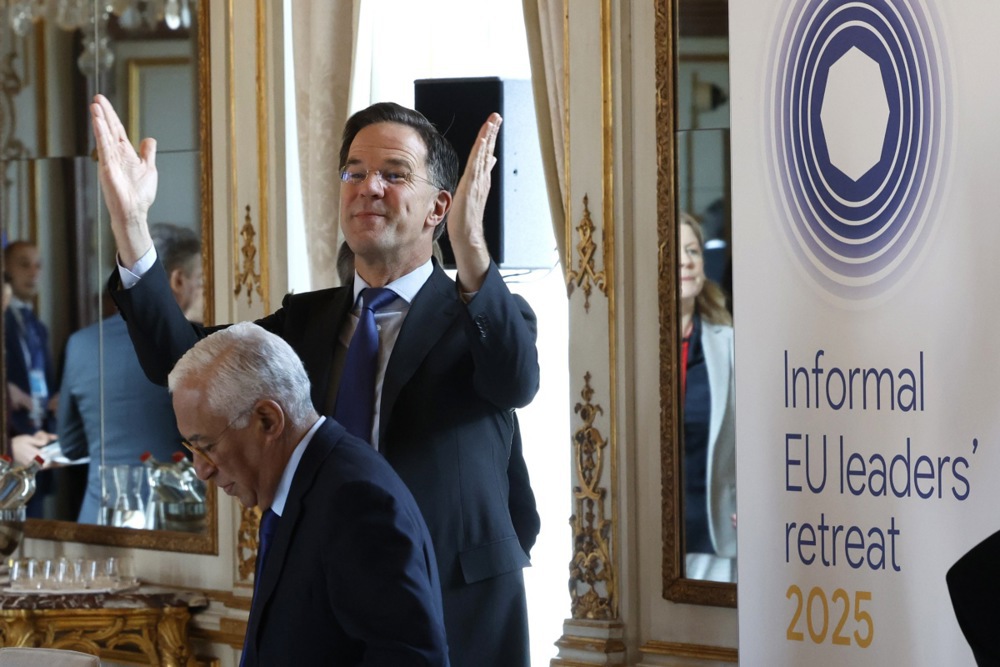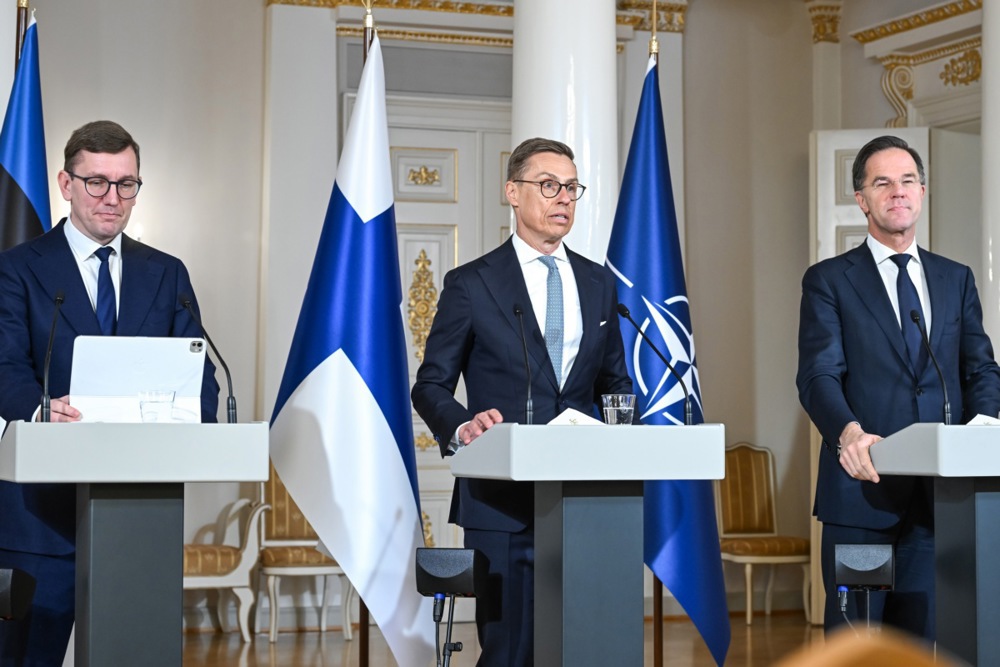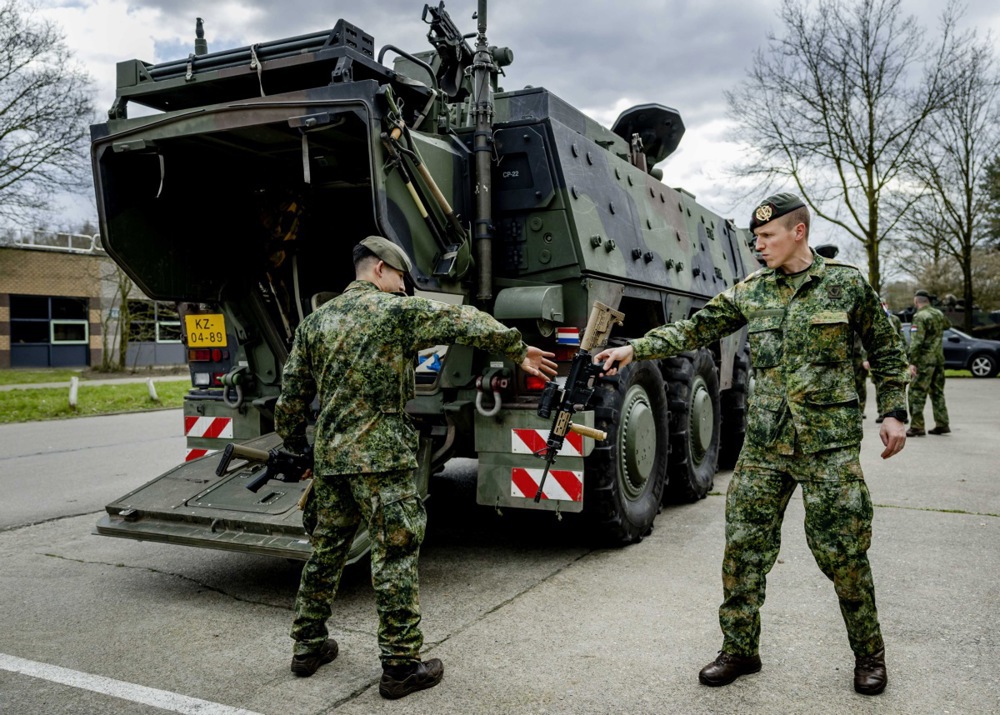NATO allies have scrambled to preserve unity as a growing US-European Union trade dispute threatened to overshadow efforts to boost military spending.
Belgian Prime Minister Bart De Wever, after meeting with US Secretary of State Marco Rubio, in Brussels for the NATO summit on April 4, said he “deeply regrets the current trade dispute”, Belgian newspaper Le Soir reported.
On X, De Wever expressed hope it would “soon end” and urged the preserving of the free trade and defence ties that “kept the Western world secure and prosperous”.
NATO Secretary-General Mark Rutte tried to separate the issues. “We should keep them separate and should not let them interfere in our discussions,” he told a press gathering, adding that the US tariff package should not have a negative impact on the meeting.
That came just two days after US President Donald Trump’s unveiled his worldwide wave of global tariffs that triggered fresh concerns across Europe, many of which countries were both NATO allies and now targets of the new duties.
Rubio dismissed what he called “hysteria” in the global media over fears Washington might abandon the alliance.
“The president has made it clear that he supports NATO,” he told reporters, adding that the US wanted the alliance to be “strong”.
He reiterated that the US expected allies to spend far more on defence. Trump’s push for a targeted 5 per cent spending of GDP — announced when he took office in January — was reinforced a few days previously by Rutte, who said the current two per cent guideline is no longer enough.
“We still need more,” he said, suggesting a new goal “higher than 3 per cent”.
Belgium, currently spending 1.3 per cent, has pledged to reach 2.5 per cent by 2034. Italy was at 1.57 per cent and was considering hitting the NATO target a year earlier than originally planned.
The Baltic States and Poland were already close to the 5 per cent level and were ready to “pay the price” to align with Washington.
The current NATO guideline — set at 2 per cent of GDP — was already a difficult threshold for some member states.
Trump’s push for a new 5 per cent target risked widening the gap between the US and European allies, many felt. While Rubio claimed the US would give allies “some time” to reach the new goal, he made it clear that its patience would not be unlimited.
According to NATO figures, the US currently spent about 3.4 per cent of its GDP on defence, the Belgian national news agency Belga had reported.
A “relatively small group” of countries, including the Baltic states and Poland, it said, was already near or at 5 per cent and had been outspoken in their willingness to “pay the price” to deter Russia and stay aligned with US priorities.
Rutte, speaking to the press, acknowledged that while 5 per cent may seem unrealistic, a new threshold “higher than 3 per cent” was now under serious discussion.
“We literally see hundreds of billions of euros rolling in,” he said. “This is probably the biggest increase in defence spending on the European side of NATO since the end of the Cold War. But we still need more.”
European Union foreign policy chief Kaja Kallas said it had been “important” to hear Rubio reaffirm the US commitment to NATO, Reuters reported. “Nevertheless, European countries need to be stronger,” she said.
Trump was expected to attend the NATO summit in The Hague from June 24 to 26, Polish foreign minister Radoslaw Sikorski told reporters.
“President Trump confirmed it to the leaders, it is still valid,” Sikorski said. “From what we hear, President Trump will be present at the summit.”
Rubio also addressed wider geopolitical issues.
Regarding Greenland, he warned that the US “will not allow” the island to become “dependent on China”.
On Ukraine, he said the US would know “in weeks, not months” whether Russia was “serious” about peace.





